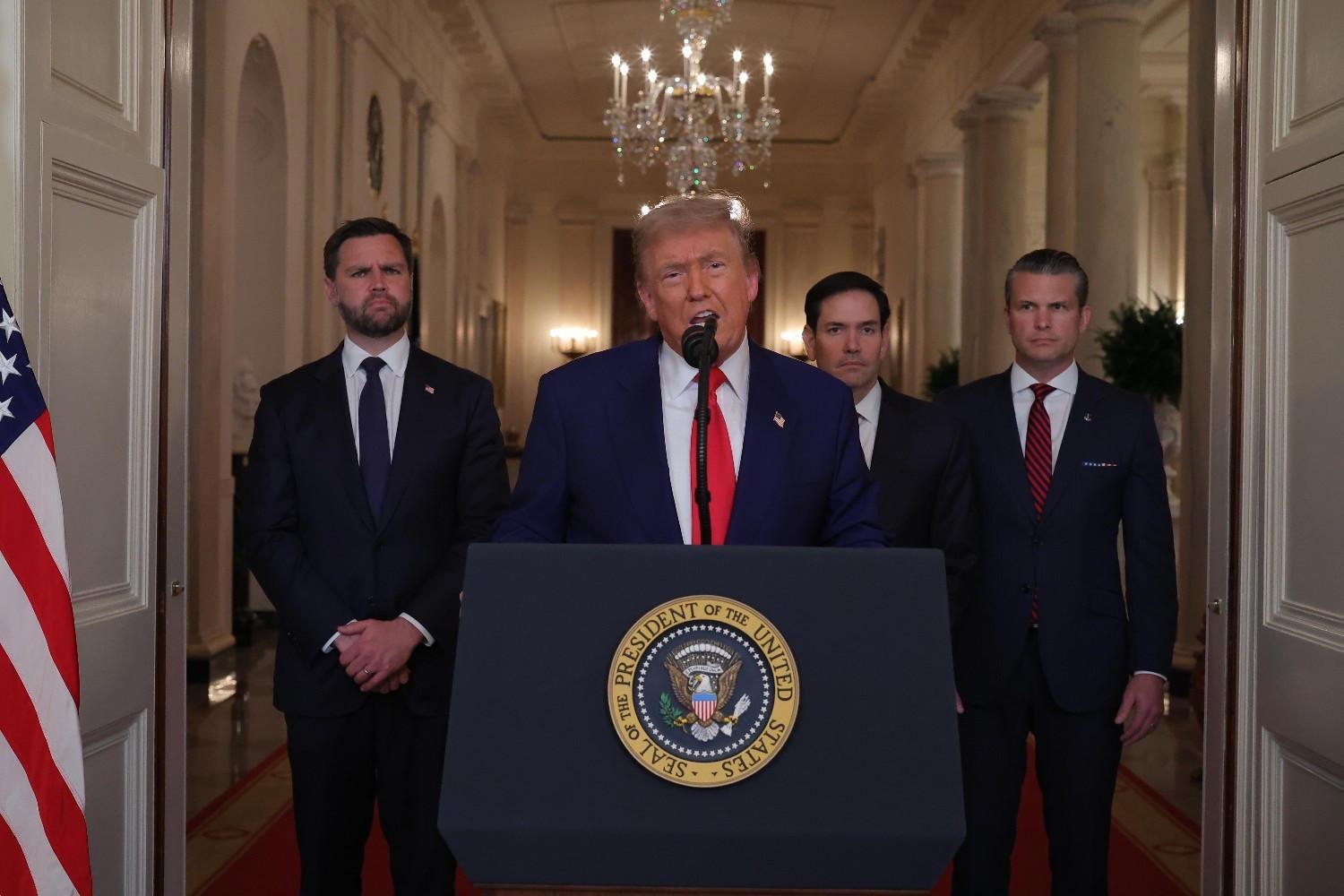
US President Donald Trump with US Secretary of Defense Pete Hegseth (R), US Vice President JD Vance (L) and US Secretary of State Marco Rubio (2-R) delivers an address to the nation at the White House in Washington, DC, USA, 21 June 2025, following US strikes on Iran's nuclear facilities.
President Donald Trump hinted Sunday at interest in regime change in Iran, despite several of his administration officials earlier stressing that U.S. strikes on Iranian nuclear sites did not have that goal.
"It's not politically correct to use the term, 'Regime Change,' but if the current Iranian Regime is unable to MAKE IRAN GREAT AGAIN, why wouldn't there be a Regime change??? MIGA!!!" Trump posted on his Truth Social platform.
Trump insisted that U.S. strikes had destroyed Iranian nuclear sites, after other officials cautioned that the extent of damage was still unclear.
"Monumental Damage was done to all Nuclear sites in Iran, as shown by satellite images. Obliteration is an accurate term!" Trump wrote on social media, without sharing the images he was referencing.
"The biggest damage took place far below ground level. Bullseye!!!" he added.
'Worldwide caution'
The U.S. State Department issued a "worldwide caution" for Americans on Sunday, saying the conflict in the Middle East could put those traveling or living abroad at an increased security risk.
"The conflict between Israel and Iran has resulted in disruptions to travel and periodic closure of airspace across the Middle East. There is the potential for demonstrations against U.S citizens and interests abroad," the State Department's security alert said.
"The Department of State advises U.S. citizens worldwide to exercise increased caution."
The statement made no mention of the United States intervening in the conflict overnight when American planes bombed nuclear facilities in Iran, a move that Tehran said would have "irreparable consequences."
The Islamic republic on Sunday threatened U.S. bases in the Middle East and warned that U.S. forces could be attacked in retaliation for the unprecedented air strikes that the Pentagon said devastated Iran's nuclear program.
"Any country in the region or elsewhere that is used by American forces to strike Iran will be considered a legitimate target for our armed forces," Ali Akbar Velayati, an advisor to Iran's supreme leader Ayatollah Ali Khamenei, said in a message carried by the official IRNA news agency.
The United States on Saturday began evacuation flights from Israel for American citizens and permanent U.S. residents living in Israel or the West Bank.
It also ordered staff at its diplomatic missions in Iraq and Lebanon to leave those countries.